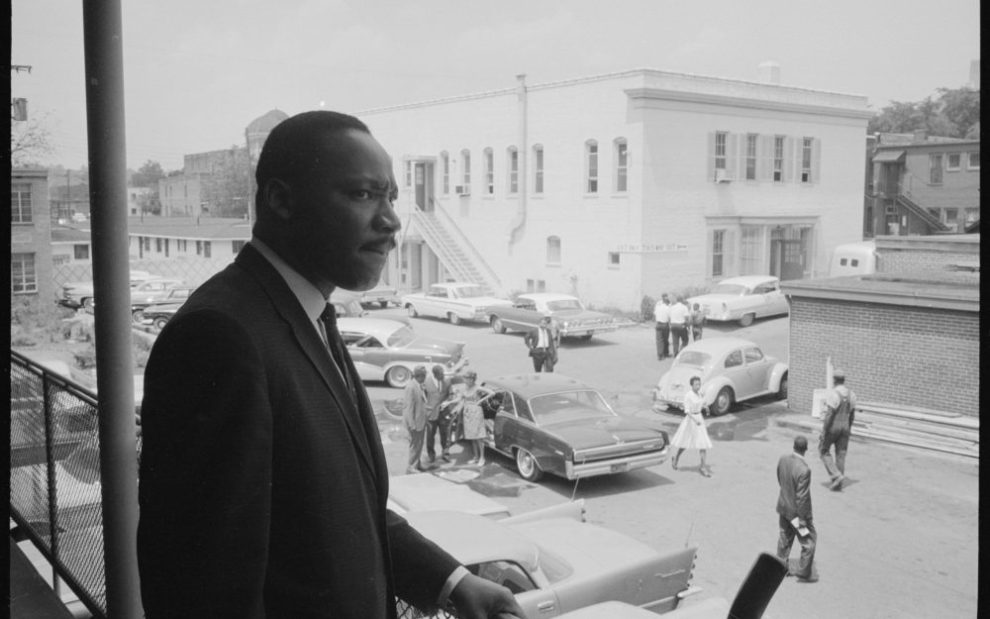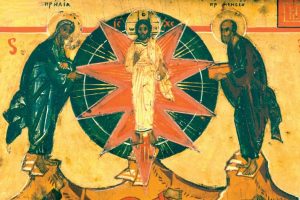Sixty years ago, a young Baptist minister was imprisoned for leading a struggle for equal rights and the full recognition of the humanity of Black Americans. While jailed in Birmingham, Alabama, Martin Luther King Jr. was informed that a coalition of white religious leaders published a statement denouncing his ministry as “extremist,” “unwise,” and “untimely.” In response, working on scraps of paper smuggled to him by a friendly jailer, King drafted a response that has become a landmark in American history, a document known as “Letter from Birmingham City Jail.”
King’s statement has become required reading in many high schools and colleges. It is often studied in history and political science classes. King gives a classic explanation of the distinction between just and unjust laws, arguing that they are just only when they conform to a higher law and respect human dignity and well-being. He echoes the classic teaching of St. Thomas Aquinas that only just laws are binding, because an unjust law is no law at all.
King passionately details the reasons for Black Americans’ impatience with the slow pace of justice, denouncing the need for it to happen at a pace dictated by the comfortable and privileged. He dismantles the myth that time alone resolves social evils, observing that there is nothing automatic or inevitable about human progress. He poignantly describes the pain in his daughter’s face when he must explain why she is barred from an amusement park that was closed to Black people.
What often goes unnoted is that this letter is not simply a political treatise. Rather, King writes as a man of faith. For me, the most powerful though little appreciated parts of the letter are King’s critiques of white Christianity. He confesses his deep disappointment “with the white church and its leadership” in a moving and pointed passage:
I have traveled the length and breadth of Alabama, Mississippi, and all the other southern states. On sweltering summer days and crisp autumn mornings I have looked at her beautiful churches with their lofty spires pointing heavenward. . . . Over and over again I have found myself asking: “What kind of people worship here? Who is their God? . . . Where were they when Governor Wallace gave his clarion call for defiance and hatred? Where were their voices of support when tired, bruised, and weary Negro men and women decided to rise from the dark dungeons of complacency to the bright hills of creative protest?
King refrained from directly stating the obvious conclusion of his line of questions, but his point is inescapable. He attributes the silence of white Christians, who hide “behind the anesthetizing security of stained glass windows” in the face of manifest injustice, to their idolatrous worship of a false god.
Sadly, much of King’s letter is still relevant today. White Christian nationalism is a plague in our nation’s social life. According to a recent American Values survey, many white Christians believe that God intended America to be a land where their comfort and their beliefs have a privileged place and that God intended America to belong to white people in a way that it does not and should not belong to “others.” So many Christians have an appreciation for—even an obsession with—what they consider personal, and especially sexual, sins. But their ears are closed and hearts are hardened toward the reality and suffering of racism. Indeed, in some states and school districts, one wonders if King’s letter can even be taught, as they now have laws that bar conversations about race that make students (read, white students) uncomfortable.
The inescapable truth is that just as King declared, white Christians and white churches still function as “archdefenders” of an unjust “status quo.”
King places uncomfortably piercing questions before us: Who is our God? Do we believe in the God of Jesus, the Christ who is present in the poor, the vulnerable, the excluded, and the outcast? Is that the God, the Jesus, that is preached in most Catholic churches? Do we truly proclaim a God who intends that all, regardless of race or any other human characteristic, are to be valued, respected, and protected?
As we honor the 60th anniversaries of this letter and of King’s iconic “I Have a Dream” address, I believe that Catholics can best do so by meditating on one of the most powerful statements from our own body of Catholic social teaching: “Action on behalf of justice . . . is a constitutive dimension of the preaching of the gospel.” And thus remind ourselves that striving for a society of inclusive justice is an essential requirement of authentic faith.
This article also appears in the June 2023 issue of U.S. Catholic (Vol. 88, No. 6, pages 40-41). Click here to subscribe to the magazine.
Image: Library of Congress, Prints & Photographs Division, U.S. News & World Report Magazine Collection, [reproduction number, LC-DIG-ppmsca-72946]













Add comment